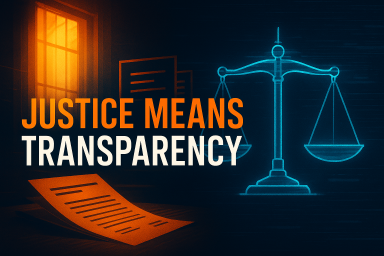UNLAWFULCONVICTIONS.ORG
When the courts don't follow the law..
Edwin Anderson’s conviction is unlawful because the court denied him his constitutional right to self-representation. Between March 3rd and April 10, 2024, Mr. Anderson filed at least four written pro se motions requesting to waive counsel and represent himself. On April 3, 2024, the court struck all of his motions solely because public defenders had been appointed. The court never held the mandatory Faretta hearing, in violation of Faretta v. California, 422 U.S. 806, 819 (1975), which held: “The Sixth Amendment grants to the accused personally the right to make his defense. It is the defendant’s decision, and it cannot be overridden by the court.” Florida law, under Tennis v. State, 997 So. 2d 375, 378 (Fla. 2008), further confirms that “If the trial court fails to hold a Faretta hearing when one is required, the case must be reversed.” Florida Rule of Criminal Procedure 3.111(d)(3) also makes this mandatory: “The court shall determine whether the defendant is voluntarily and intelligently waiving the right to counsel.”
Mr. Anderson has already been incarcerated once for a probation violation stemming from this unconstitutional sentence.That incarceration was unlawful, because it enforced a sentence that itself was issued in violation of clearly established constitutional law. He is currently on probation under that same sentence, and any future incarceration based on that probation would likewise be unconstitutional. The courts’ ongoing refusal to hear or rule on Mr. Anderson’s motions only worsens this violation, denying him the due process guaranteed under the Fourteenth Amendment.
In sum, the case law is clear: a sentence imposed without a Faretta hearing must be vacated (Faretta, 422 U.S. at 835; Tennis, 997 So. 2d at 378). Because the trial court never held such a hearing, Mr. Anderson’s conviction and sentence are unlawful. Every act of incarceration or supervision after April 10, 2024 — including his current probation — is a continuing violation of the U.S. Constitution, the Florida Constitution, Florida criminal procedure, and binding decisions of the Florida and United States Supreme Courts.
We need your consent to load the translations
We use a third-party service to translate the website content that may collect data about your activity. Please review the details in the privacy policy and accept the service to view the translations.
